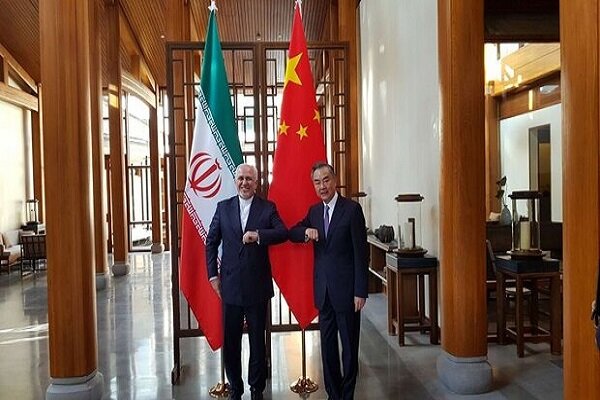 BEIJING (Kayhan Intl.) -- China’s Foreign Minister Wang Yi has called for a new forum to defuse tensions in the Middle East after a meeting with his Iranian counterpart where he reiterated Beijing’s support for Tehran.
BEIJING (Kayhan Intl.) -- China’s Foreign Minister Wang Yi has called for a new forum to defuse tensions in the Middle East after a meeting with his Iranian counterpart where he reiterated Beijing’s support for Tehran.Provoked by the U.S., Saudi Arabia and its allies are locked in an acrimonious relationship with Iran which opposes the kingdom’s war on Yemen.
"China proposes to build a regional multilateral dialogue platform with equal participation of all stakeholders,” said the Chinese foreign ministry statement.
The forum would "enhance mutual understanding through dialogue and explore political and diplomatic solutions to security issues in the Middle East”, the statement added.
Wang added that support for the Iranian nuclear deal, negotiated by the Obama administration but ultimately abandoned by Donald Trump, would be a precondition of entry to the forum.
Zarif said on Twitter his "fruitful talks” with Wang amounted to a rejection of "U.S. unilateralism” and had also focused on strategic ties and collaboration on the development of a coronavirus vaccine.
Heading a high-profile delegation, Zarif arrived in China on Friday to hold meetings with senior Chinese officials. He was welcomed in the southern province of Yunnan.
Tehran and Beijing "are determined to further expand their strategic partnership,” Foreign Ministry spokesman Saeed Khatibzadeh tweeted, adding China is Iran’s "1st economic partner” despite Washington’s "maximum pressure” campaign against the Islamic Republic.
Iran and China are working to finalize the 25-year Sino-Iranian Comprehensive Strategic Partnership, which was announced in a joint statement during a visit by Chinese President Xi Jinping to Tehran in 2016.
The cooperation roadmap consists of 20 articles, covering Tehran-Beijing ties in "Political,” "Executive Cooperation,” "Human and Cultural,” "Judiciary, Security and Defense,” and "Regional and International” domains, according to the statement released back then.
To America’s dismay, the deal is crafted to help the two sides ditch dollar in bilateral trade and bypass the American sanctions.
Zarif’s visit came on the 50th anniversary of the establishment of diplomatic ties between the two countries.

No comments:
Post a Comment